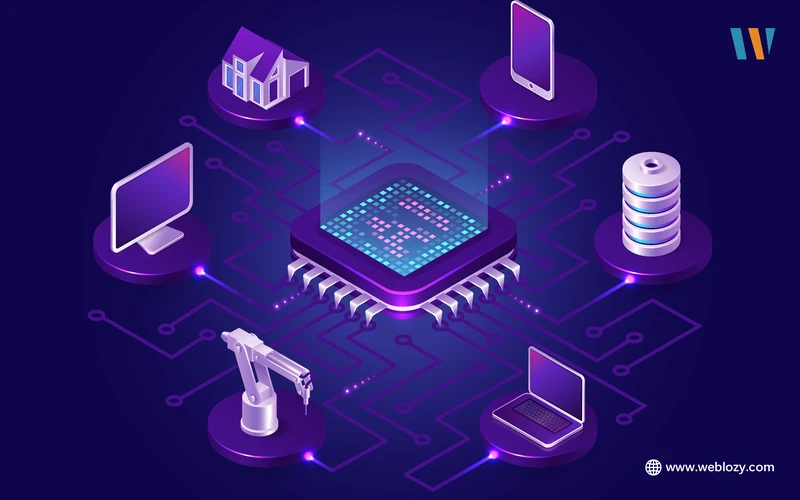In the digital age, web design has become an essential component of any business's online presence. As technology continues to evolve, the design industry has seen a significant shift in how web design services are delivered. With the emergence of Artificial Intelligence (AI), the future of web design has never looked more exciting.
How does AI function?
The ability of machines to learn from data is the fundamental tenet of artificial intelligence (AI), which is a broad field that incorporates a variety of methods. This is accomplished using calculations and AI methods that empower machines to distinguish designs in information and make expectations in view of those examples.
There are typically two main categories for these algorithms: learning under the supervision and unsupervised learning.
When the desired outcome or solution is known, supervised learning algorithms are used to train the algorithm to find patterns in the data that correspond to that outcome.
On the other hand, unsupervised learning algorithms are utilized when the desired outcome is unknown and the algorithm is utilized to identify data patterns that may be useful.
 Empowering web design with AI
Empowering web design with AI
Deep learning, a subset of machine learning that makes use of neural networks to learn from data, and reinforcement learning, which is used to train an AI agent to make a series of decisions, are two other types of machine learning algorithms.
AI technology has been making waves in many industries, and the design industry is no exception. AI has the potential to revolutionize the way we approach web design, making it more efficient, effective, and user-friendly. As such, web design companies that embrace AI technology are set to offer the best web design services that can propel businesses to the forefront of their industries.
One of the significant benefits of AI in web design is the ability to streamline the design process. Traditionally, web design involves a lot of manual work, such as creating wireframes, prototypes, and designing layouts. AI tools can automate many of these tasks, reducing the time and effort required to complete them.
For instance, AI-powered design tools like Sketch2Code and Adobe Sensei can convert hand-drawn wireframes into fully functional HTML code. This functionality can save web design companies a lot of time and money, allowing them to focus on other essential aspects of the design process, such as user experience and interface design.
In addition to streamlining the design process, AI can enhance the user experience of web design services. By using machine learning algorithms, AI tools can analyze user behavior to gain insights into how users interact with websites. This information can be used to create personalized user experiences that cater to the unique needs of each user.
Also Read
12 TRENDING CUSTOMER EXPERIENCE (CX) IN 2023
Read More
For example, an AI-powered chatbot can help guide users through a website, providing them with relevant information and support. This can improve user engagement, increase conversion rates, and ultimately drive business growth.
Another area where AI is set to revolutionize web design is in the creation of custom graphics and layouts. AI tools can analyze data from various sources, such as social media, user feedback, and search trends, to create personalized designs that align with a company's brand identity.
This level of customization can help businesses stand out from their competitors, create a strong brand identity, and build brand loyalty. It can also save web design companies a lot of time and effort by automating the design process and ensuring that the final product aligns with the client's needs and preferences.
Limitations Of AI
Lack of Creativity and Intuition
One significant limitation of AI is that it lacks creativity and intuition. While AI can perform many tasks that are repetitive, rule-based, and data-driven, it cannot think outside the box or come up with new ideas like humans.
Data Bias
AI algorithms are only as good as the data they are trained on. If the data is biased, the AI will learn those biases and perpetuate them in its decisions. This is a significant issue in areas such as recruitment and lending, where biased algorithms can perpetuate systemic discrimination against certain groups.
Security Risks
Another limitation of AI is the potential security risks associated with its use. As AI becomes more prevalent in critical infrastructure, such as healthcare, finance, and transportation, it becomes a potential target for cyber attacks. Additionally, AI systems that learn from human behavior may inadvertently pick up on bad practices or errors, leading to security vulnerabilities that could be exploited by bad actors.
Also Read
HOW TO DECONTROL COGNITIVE OVERFLOW IN WEB DESIGN: 8 STEPS
Read More
In conclusion, AI is set to transform the future of web design services, offering businesses the best web design services that are efficient, effective, and user-friendly. Web design companies that embrace AI technology are poised to stay ahead of the curve, offering their clients cutting-edge designs that deliver results. As AI continues to evolve, we can expect to see even more exciting innovations in web design, creating a brighter future for the design industry as a whole.
Are you looking for a reliable and professional web design company to take your online presence to the next level? Look no further than Weblozy! Contact us today to learn more about how we can help you achieve your online goals and take your business to new heights!